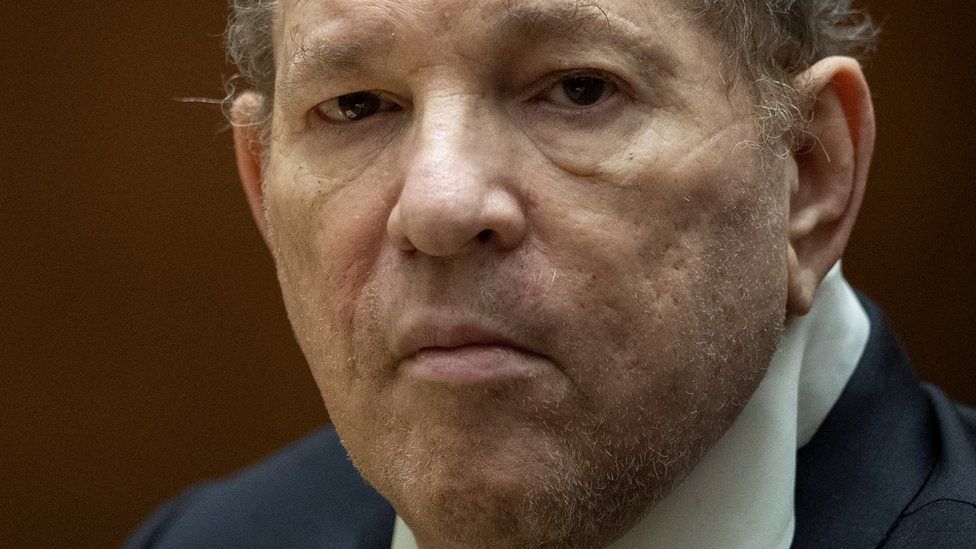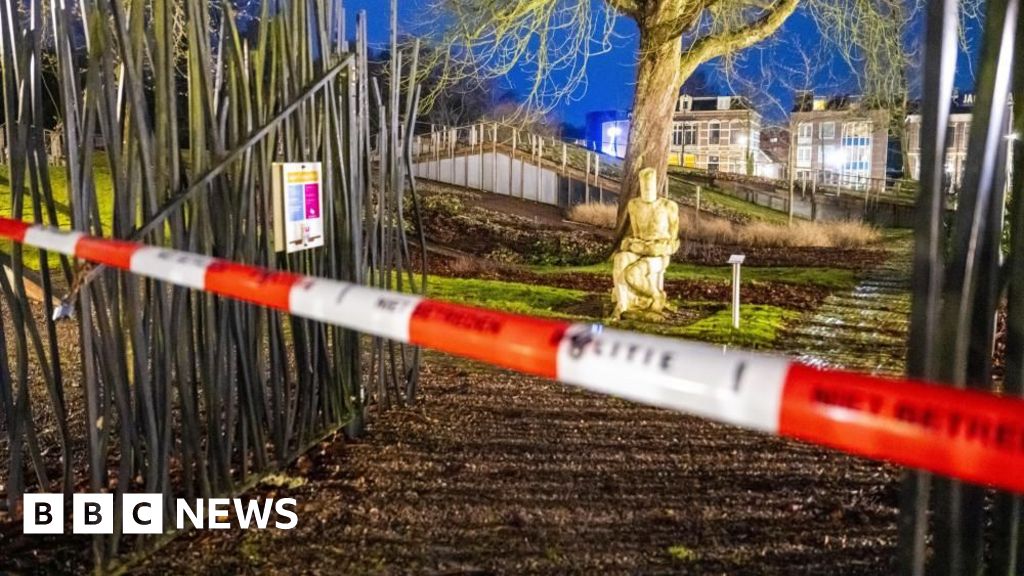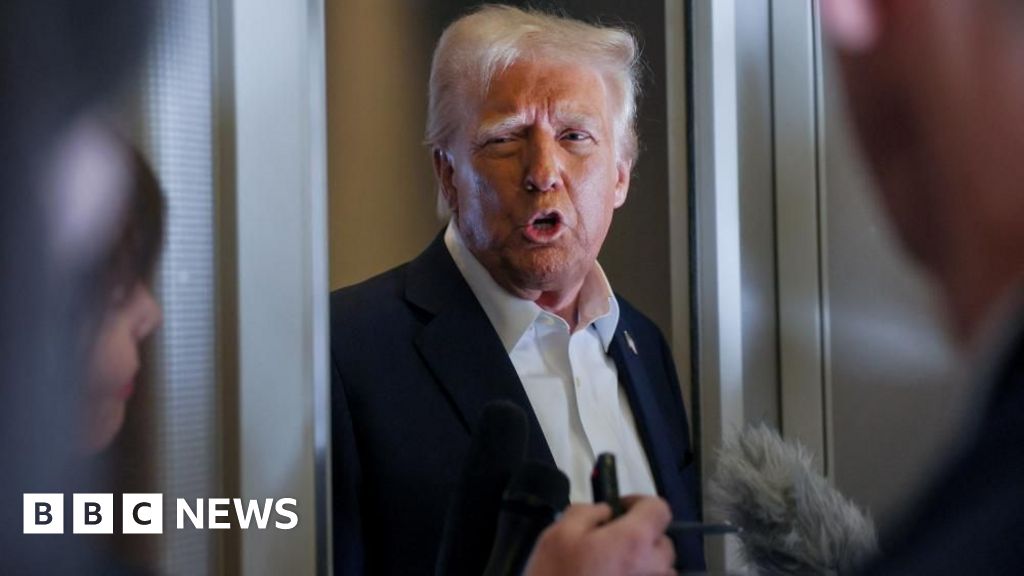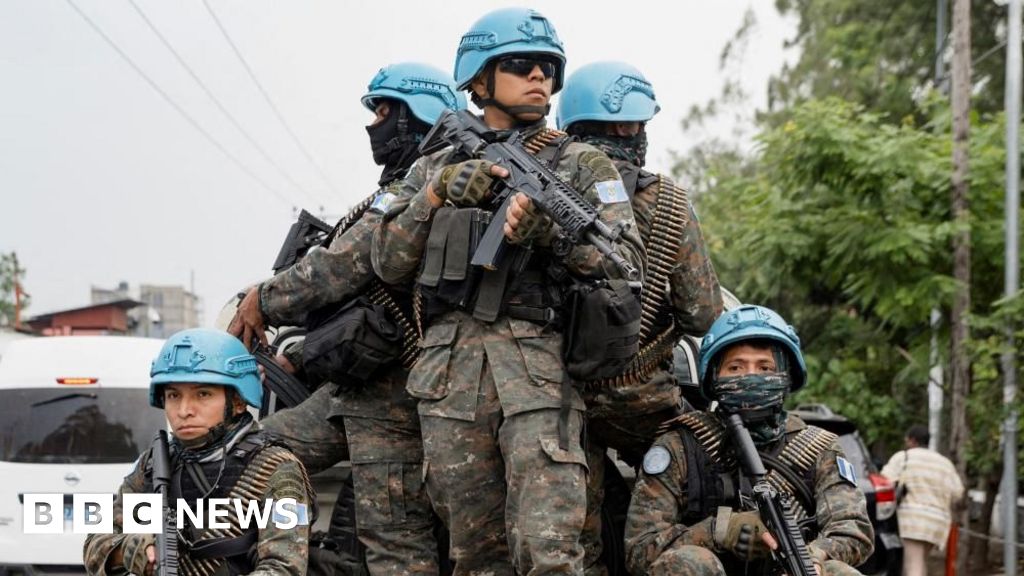ARTICLE AD BOX
 Image source, Pool via Reuters
Image source, Pool via Reuters
Harvey Weinstein pictured in court in Los Angeles earlier this month
By Sophie Long and Regan Morris
BBC News, Los Angeles
Hollywood is preparing for the start of a new trial for Harvey Weinstein, which is expected to begin on Monday in Los Angeles, after the jury was selected on Friday.
A much-diminished Weinstein, with reportedly declining health, is back in LA and incarcerated in a prison cell, on trial for rape and sexual assault.
This court case follows Weinstein being convicted in New York for other sex crimes, though that case is under appeal.
He denies ever having non-consensual sex with anyone.
The LA trial is expected to be much less of a spectacle, but it's causing many in Hollywood to look back at the #MeToo movement and assess its success.
A recent study by the advocacy group showed that while 83% of respondents felt that progress has been made since 2017, a staggering 69% said they had personally experienced abuse or misconduct at work since the movement began.
"It's lost momentum," Women in Film executive director, Kirsten Schaffer, said of the movement for equal rights and representation for women.
Seasoned film producers often ask their stars to shoot sex scenes on the first day of filming. That way, an actor can't change their mind about nudity half way through a film when recasting would prove expensive.
That still happens in Hollywood, five years after stories of systemic sexual assault and harassment rocked Hollywood and ignited the #MeToo.
But now, it's likely an intimacy coordinator will be on set making sure actors feel comfortable and safe as they simulate sex.
Schaffer continues: "I think there is forward motion. And that's why it's not it's not super depressing," she says, adding that five years ago the response to #MeToo was intense, with "so many people caring about it, putting new policies in place, launching programmes".
And many people in Hollywood say those policies are working.
Actresses say they're offered more interesting roles, and there are more opportunities for female crew members, writers and directors.
Rosanna Arquette, one of Weinstein's first public accusers, was part of the Screen Actors Guild committee which helped introduce intimacy coordinators on set, to make sure everyone is comfortable in any scene requiring nudity.
"A lot of people were against the intimacy coordinators, but you know, a lot of abuse did happen that way," Ms Arquette told the BBC.
Image source, Getty Images
Image caption,Rose McGowan and Rosanna Arquette came forward with accounts of abuse by Weinstein in 2017
Many aspiring actors say the industry has changed for the better. When we visited an acting class five years ago, many told us horror stories of the fear they face going into auditions - the very real fear that they might be sexually assaulted or propositioned in exchange for a role.
At the Michelle Danner Acting Studio this week, aspiring stars spoke to the BBC about their experiences auditioning and performing in low-budget films hoping to get their big break. Aside from a few sleazy propositions, most said they'd been treated with respect.
Ms Danner, who runs the acting studio and directs movies, says the casting couch will never fully disappear but that people are much more careful now.
Auditions have become much more safe and formal experiences, with monitors and rules about the number of people in a room. And due to the pandemic, many are now taking them via video phone.
"The fears are real," says Ms Danner, adding that people feel empowered to speak up now more than ever if there is misconduct at work.
"The #MeToo movement created that, and there's no going back. I don't think you can ever close the door to what has started."
Image source, Getty Images
Image caption,Weinstein was known for producing films such as Shakespeare in Love and Pulp Fiction
The Academy of Motion Pictures has responded to criticism of Hollywood by significantly diversifying its membership, inviting more women and people of colour to be part of the group which hosts the Oscars.
But it can only do so much and the statistics for women in film can be fairly grim.
According to the Center for the Study of Women in Film in Television, female characters accounted for just 35% of major characters in the top 100 grossing films in 2021, down three percentage points from the previous year.
And after reaching historic highs in 2020, the percentages of women directing top grossing films declined in 2021. The number of women working as directors on the top 100 films retreated from 16% in 2020 to 12% in 2021.
But more women are producing film and TV - 32% of producers (up from 30% in 2020).
Many powerful female players like Reese Witherspoon have started their own production companies, to make the kind of films and TV shows they want to see. That urge has spread throughout the industry.
At the Danner acting school, actresses Josephine Hies and Meitar Paz have started producing as well as acting so they can have more control over the stories they tell.
As a producer you have "a different power in how you tell stories" and power over which stories are told, Hies said.
Image source, Universal Pictures
Image caption,Carey Mulligan and Zoe Kazan star in She Said, a new film about journalists investigating Weinstein
Harvey Weinstein's downfall is now immortalised in a film. She Said stars Carey Mulligan and Zoe Kazan as the New York Times reporters who investigated the sexual harassment and abuse claims against Weinstein. It's due to hit cinemas in the US in November, and Mr Weinstein's lawyers failed in their attempt to delay its release, claiming it would prejudice the jury that's just been selected against him.
At the film's New York premiere, the stars rubbed shoulders with many of Weinstein's accusers, some of whom have roles in the film.
Rowena Chiu, Weinstein's former assistant who says he sexually assaulted her then coerced her into signing a Non-Disclosure Agreement, or NDA, says she hopes the film will inspire healthier workplaces.
She came forward 20 years after the alleged assault to tell her story, because she thought it was important to say that it wasn't just Hollywood actors who were targeted.
"It's important that we uphold the legal system. There were dozens of women he assaulted and only a handful can testify," she said.
"I'm not involved in Hollywood. I don't work in Hollywood," she said.
"It's important to show our stories."

 2 years ago
130
2 years ago
130








 English (US) ·
English (US) ·